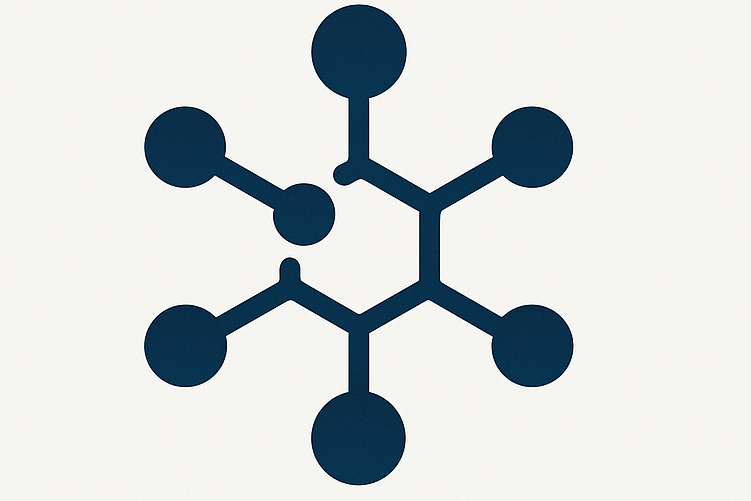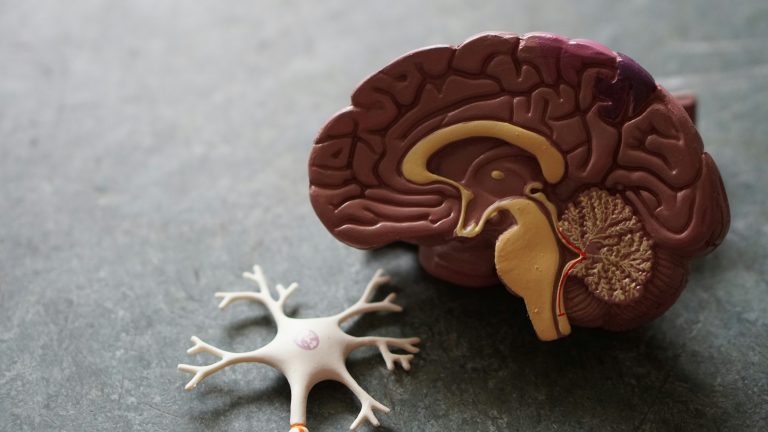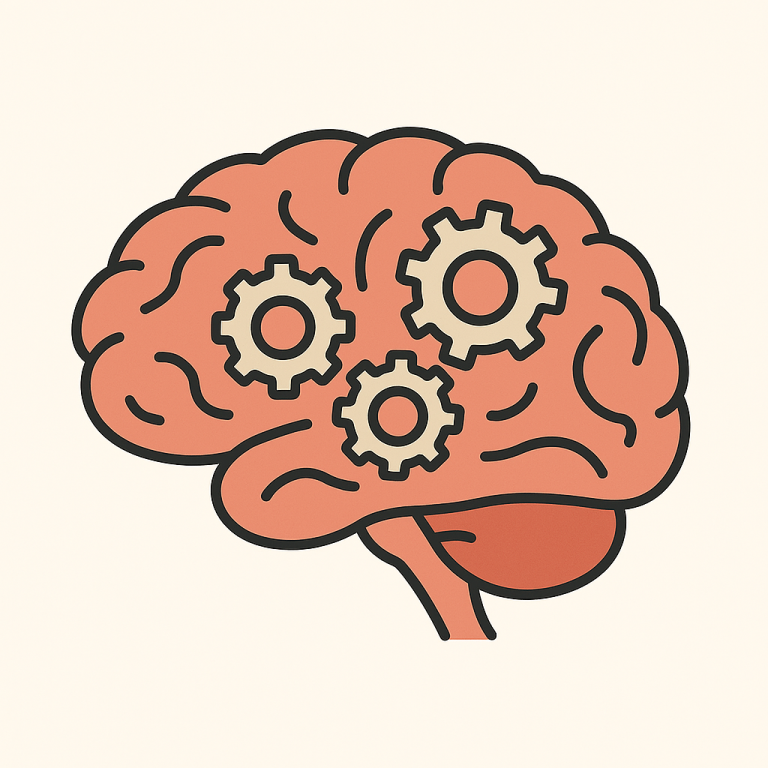Nootropics for Studying: Boost Your Focus and Memory

Many students and professionals alike search for ways to boost their study sessions. They focus on achieving better concentration, memory, and cognitive performance. This is where nootropics, often referred to as cognitive enhancers, come into play.
These supplements and substances can improve mental functions like memory and focus, making them popular among those looking to enhance their studying abilities.

Popular nootropics include Bacopa Monnieri, known for its memory-enhancing properties, and L-Theanine, which promotes relaxed focus.
Citicoline is another effective choice for boosting mental energy. Some stronger options like Ritalin and Adderall are also used to increase dopamine levels in the brain. However, they’re primarily prescribed for conditions like ADHD and need to be used with caution.
Understanding Nootropics

Nootropics, often known as smart drugs, are substances that can enhance cognitive functions like memory, creativity, and motivation. They are divided into various types based on their composition and purpose.
Definition and Classification
Nootropics are classified into dietary supplements, synthetic compounds, and prescription drugs. Dietary supplements are often made from natural ingredients and are available over the counter.
Synthetic compounds are man-made and usually require research and development to ensure their safety and effectiveness. Prescription drugs such as modafinil or Adderall are medically approved to treat conditions like ADHD but are sometimes used off-label for cognitive enhancement.
Each of these categories aims to improve brain function in different ways. Some may enhance focus and attention, while others might boost memory or improve mood.
History of Nootropics
The concept of enhancing cognitive function dates back to ancient times when natural herbs were used. The modern history of nootropics began in the 1960s.
The term “nootropic” was coined by Romanian psychologist and chemist Dr. Corneliu E. Giurgea in 1972 after he synthesized Piracetam, considered the first true nootropic.
Early research focused on developing drugs that could help cognitive impairments. Today, nootropics are used by students, professionals, and even athletes to improve cognitive functions. The evolving research and interest reflect a growing demand for understanding how these substances can be safely used to enhance mental abilities.
Common Nootropics for Studying

Nootropics are popular for enhancing focus, memory, and mental clarity. These compounds can be split into natural and synthetic types, each offering unique benefits for studying.
Natural Nootropics
Natural nootropics often include herbs and supplements sourced from plants. Ginkgo biloba is commonly used to improve memory and concentration. It has antioxidants that may boost brain function.
Bacopa monnieri is another plant-based option known to enhance memory recall and reduce anxiety, making it ideal for students.
Caffeine is one of the most widely used natural nootropics. Many people consume it daily for increased alertness. When paired with L-theanine, it may enhance focus and reduce jitters, often found in tea. This combination is popular for sustained attention during study sessions.
Synthetic Nootropics
Synthetic nootropics are laboratory-made compounds. Modafinil is well-known for its ability to improve wakefulness and reduce fatigue. It’s often used by students for long study periods.
Piracetam is another option, believed to boost cognitive function and memory.
Adderall and Ritalin are prescription medications used mainly for attention deficit disorders. However, they are also considered nootropics for their ability to increase concentration. While effective, they require medical supervision due to potential side effects. These synthetic nootropics can significantly aid studying but should be used responsibly.
Mechanisms of Action
Nootropics improve cognitive functions by influencing neurotransmitter levels and promoting brain health. They are believed to enhance memory, learning, and mental clarity through specific mechanisms.
Impact on Neurotransmitters
Nootropics often target neurotransmitters, which are the brain’s chemical messengers. These substances can boost memory and learning by altering levels of neurotransmitters like acetylcholine, dopamine, and serotonin.
Acetylcholine is vital for memory and attention. Compounds such as alpha-glycerylphosphorylcholine (Alpha-GPC) increase choline, which is a precursor to acetylcholine, enhancing cognitive performance. By supporting acetylcholine levels, nootropics help maintain focus and memory retention.
Nootropics may also affect dopamine, linked to mood and motivation. These effects can lead to improved concentration and a more positive outlook when studying, benefiting overall cognitive function and academic performance.
Neuroprotection and Brain Health
Nootropics offer neuroprotective benefits by defending brain cells from damage. This can include reducing oxidative stress or improving blood flow to the brain. Such actions ensure better brain health and functionality over the long term.
They support cell membrane integrity and enhance neuron communication. By optimizing brain health, nootropics like Alpha-GPC aid in maintaining clear thinking and efficient functioning. They also help in protecting against age-related decline, ensuring that individuals have the cognitive capacity needed for studying and learning.
Some nootropics can even promote brain cell repair and regeneration, further securing their role in cognitive enhancement and better academic achievements.
Benefits of Nootropics
Nootropics are often used to enhance various cognitive functions. They may boost memory, improve concentration, and encourage cognitive flexibility, making them useful tools for studying and learning in different environments.
Memory Enhancement
Nootropics can play a role in boosting memory by supporting neurotransmitter function and increasing synaptic plasticity. They may help improve both short-term and long-term memory retention by enhancing the ability to encode and recall information.
Some nootropics are known to increase the density of synapses in the brain, which can improve communication between neurons. Others may aid in the reduction of inflammation and oxidative stress, further protecting brain cells. These effects impact memory formation and retrieval, contributing to better learning outcomes for individuals using them for study purposes.
Improved Concentration and Focus
The use of nootropics can also lead to better concentration and focus. Certain substances increase neurotransmitter levels such as dopamine and norepinephrine, which are associated with alertness and attention. This can result in enhanced mental clarity and sustained focus during academic tasks.
Nootropics may reduce mental fatigue, allowing for longer study sessions with less distraction. By supporting energy metabolism in the brain, they help maintain focus during demanding cognitive tasks. This improved concentration can lead to more efficient learning and better academic performance.
Cognitive Flexibility
Cognitive flexibility is another benefit of nootropics. This involves the brain’s ability to adapt to new information and switch between thinking about different concepts. Some nootropics can enhance this flexibility by boosting the brain’s neuroplasticity and encouraging the formation of new neural connections.
Improved cognitive flexibility aids in reasoning and decision-making, as it allows individuals to view problems from multiple perspectives. This ability to adapt and find creative solutions can be particularly valuable in dynamic or challenging study scenarios. Such flexibility is crucial for problem-solving and innovative thinking, making nootropics valuable in academic and professional settings.
Potential Risks and Side Effects
Nootropics, often used to enhance cognitive performance, can also present certain risks and side effects. It’s important to be aware of adverse reactions, interactions, and considerations for long-term use.
Adverse Reactions and Interactions
Nootropics can cause various adverse reactions. Common side effects include insomnia, which disturbs sleep patterns, and anxiety, leading to feelings of restlessness or nervousness. In some cases, they may also cause depression as they alter brain chemistry.
Interactions with other medications or substances can increase these risks. For instance, combining nootropics with stimulants may intensify a rapid heart rate or high blood pressure issues.
It’s crucial to consult a healthcare provider to understand how nootropics might interact with existing medications or health conditions. Monitoring for any changes and adjusting the dosage accordingly helps in managing these side effects effectively.
Considerations for Long-Term Use
Long-term use of nootropics requires careful consideration. While some believe they improve concentration and learning, safety and efficacy over extended periods remain uncertain.
There is a potential for dependence, especially if taken regularly for mood enhancement. This can lead to withdrawal symptoms if abruptly stopped. Additionally, there might be cognitive decline with prolonged use due to overstimulation of the brain.
Understanding individual responses and setting appropriate limits is essential. Regular health check-ups help in tracking any negative impacts on mental and physical health over time. Balancing benefits with these risks allows for a more informed approach to using nootropics for studying purposes.
Nootropics in Specific Populations
Nootropics, often known as cognitive enhancers, can influence different populations in unique ways. They may aid students in learning, boost workplace productivity for professionals, and improve performance for athletes.
Students and Academic Performance
Students seeking an academic edge often turn to nootropics to enhance concentration and memory. These substances can boost attention and motivation, making them useful for exam preparation and challenging coursework. In individuals with ADHD, certain nootropics may help regulate focus and reduce distractions.
For example, some students find caffeine combined with L-theanine effective, as it promotes alertness without jitters.
Though some students might use prescription drugs for cognitive enhancement, the safety and legality of such use involve significant concerns. Natural options like ginkgo biloba or bacopa monnieri are popular among those preferring non-prescription alternatives.
Professionals and Workplace Productivity
In the professional world, nootropics are often used to improve workplace productivity. They can enhance concentration, reduce mental fatigue, and support effective decision-making. These benefits are particularly appealing for tasks requiring prolonged periods of focus.
Professionals might use nootropics to maintain motivation and clarity throughout extended work hours. Compounds like modafinil are sometimes used off-label to improve alertness and performance, especially in demanding roles. Others might opt for natural supplements, such as rhodiola rosea, for a more balanced mental state.
Athletes and Physical Performance
Athletes may turn to nootropics for their ability to enhance focus and reaction time, essential components of peak physical performance. Though nootropics are more commonly associated with mental benefits, certain substances can indirectly support physical capabilities by improving an athlete’s mental game.
For example, caffeine is a well-known performance enhancer that increases alertness and endurance. Some athletes also experiment with creatine, which not only supports muscle energy but also aids cognitive function. While physical performance relies heavily on training and nutrition, cognitive enhancers might provide an edge in competitive environments.
Regulatory and Ethical Considerations
The regulation and ethics surrounding nootropics are important when considering their use for studying. These aspects address the legal status and the fairness of using such substances.
Legal Status and Accessibility
Nootropics vary widely in their legal status across different countries. Natural nootropics, such as those classified as dietary supplements, are generally legal. However, synthetic nootropics, including many stimulants, often face stringent regulations.
In some regions, certain nootropics require a prescription due to their potential effects on the nervous system. Others might be restricted entirely.
For students, understanding the legal framework where they reside is crucial. Accessibility also hinges on these regulations, influencing availability in pharmacies or online retailers.
Natural options like caffeine are easily accessible, while prescription medications often require medical approval. Online purchases of nootropics can sometimes bypass local restrictions, raising ethical and legal questions. It is vital to stay informed about the legal landscape to make responsible choices.
Fairness and Ethical Debate
The use of nootropics, especially among students, stirs debate about fairness and ethics. Some argue that using these cognitive enhancers gives users an unfair advantage. This is particularly relevant in academic settings, where performance competitions are intense.
The ethical considerations also touch on whether it is right for healthy individuals to use substances meant for those with medical conditions. The potential for addiction and abuse, especially with potent stimulants, adds another layer to the ethical discussions.
Balancing the desire for cognitive enhancement with ethical practices is a constant challenge. Individuals need to weigh the benefits against the ethical implications, considering how nootropics might affect the integrity of academic performance.
Optimizing Nootropic Use
Effectively using nootropics involves understanding the right dose, timing, and combinations with lifestyle habits. Personalized strategies are essential to maximize their cognitive benefits.
Effective Dosing and Timing
Knowing the right dosage helps get the most from nootropics.
For example, citicoline is often taken in doses of 250-500 mg.
Timing matters, too.
Some nootropics are best in the morning for alertness, like rhodiola rosea, which can help reduce fatigue.
Phosphatidylserine, found in soybeans, is beneficial for reducing stress and often taken alongside a meal for better absorption.
It helps with memory and is usually taken in doses of 100 mg three times daily.
Monitoring effects can help in adjusting doses for individual needs.
Synergy with Diet and Lifestyle
Nootropics work best when combined with healthy habits.
A diet rich in fruits, vegetables, and omega-3 fats can enhance brain function.
Foods containing vitamin B6, like fish and potatoes, support metabolism and energy.
Staying hydrated is also crucial, as dehydration affects cognitive performance.
Regular exercise boosts blood flow to the brain and enhances the effect of nootropics.
Sleeping well is vital. It solidifies learning and memory, making nootropics more effective.
Consistent routines can help balance the effects of supplements.
Personalization and Tailored Protocols
Everyone reacts differently to nootropics. It’s important to tailor protocols based on individual response.
Experiment with different compounds and doses to find the most effective strategy. Keeping a journal can track impacts on focus, energy, and mood.
Adjusting nootropic stacks, which are combinations of different compounds, can enhance benefits.
An example of a useful stack is combining citicoline with phosphatidylserine to boost memory and cognitive function. Consulting with healthcare professionals can provide additional guidance for creating personalized plans.







